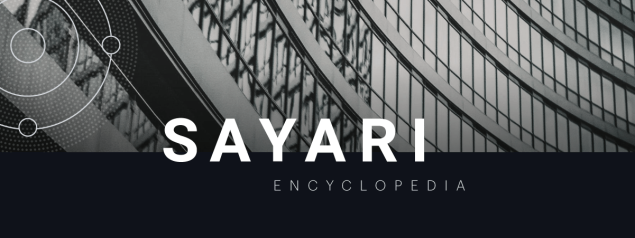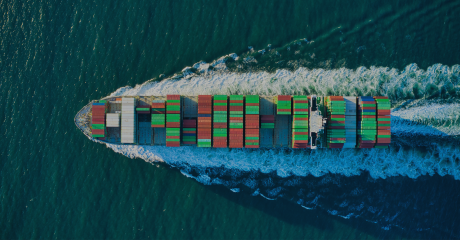What is sanctions compliance?
Sanctions screening is an essential part of a bank or multinational’s regulatory compliance framework. It’s how businesses meet regulations that prohibit them from transacting with any sanctioned individuals or entities. Sanctions are defined as political measures that governments take to demonstrate disapproval of actions taken by other nations that limit or ban customary trade and financial relations.
Businesses that operate in the country issuing the sanctions are obliged to comply at the risk of facing penalties. Sanctions compliance requires that businesses take proactive actions to ensure they aren’t conducting any trade or business activities with sanctioned individuals or nations. This can also include transaction screening for banks to prevent payments involving designated individuals or entities.
Complying with the regulations on sanctions against foreign entities requires much more than just checking a list of restricted companies and individuals. Up-to-date data, coupled with the right screening technology, can help your organization avoid fines and unnecessary expenses. The U.S. Office of Foreign Assets Control (OFAC) offers businesses important guidance on running proper sanctions compliance programs.
>> Learn how to navigate existing sanctions regimes and prepare for new threats <<
Why is sanctions compliance important?
Sanctions play an important role in the global fight against financial crime, terrorism or other unethical activities, which can pose threats to international peace. For these sanctions to be effective, financial institutions and corporations need to ensure they remain in compliance, otherwise they risk lessening the impact of the sanctions regime.
For businesses, sanctions compliance is important because the legal penalties for a compliance violation are potentially detrimental. However, those penalties could be dramatically lowered if a business can prove they were attempting to comply with sanctions rules. According to U.S. sanctions rules, if a company voluntarily self-discloses its violations and the violations themselves aren’t egregious, the penalty is typically reduced to only 50 percent of the transaction value.
What is the latest in sanctions legislation?
In the months since Russia’s invasion of Ukraine in early 2022, countries across the world have stepped in with sanctions to attempt to damage Russia’s economy, weaken their military power, and to prevent any other human rights violations. Even as recently as the first week of August, the Treasury and State departments have continued to impose new sanctions. The latest sanctions compliance requirements included visa restrictions, sanctions on multinational companies and designations for oligarchs and entities involved in finance, technology and scientific research.
>> Learn strategies for conducting Investigations in a Rapid-Fire Russian Sanctions regime <<
The United States has issued far-ranging sanctions on Russia in a number of industries, including, but not limited to, the following:
- Banned the import of Russian crude oil, petroleum products, liquefied natural gas, coal, gold, diamonds, seafood, and alcoholic beverages
- Suspended normal trade relations with Russia and Belarus and increased tariffs on otherwise permissible imports from those countries
- Added hundreds of Russian individuals, including Putin, Lavrov, Security Council members, politicians, government officials and ministers, oligarchs, business executives, and their family members to the Specially Designated Nationals and Blocked Persons List, which prohibits Americans from engaging in any transactions with them
- Imposed blocking sanctions on Russia’s largest banks, including Sberbank, VTB Bank, VEB, Alfa Bank, the Russian Direct Investment Fund, the Central Bank of Russia, the National Wealth Fund of the Russian Federation, and the Ministry of Finance of the Russian Federation
- Imposed restrictions on over 2,000 Russian businesses including notable entities such as Rostec, Alrosa, Severstal, United Shipbuilding Corporation, Nord Stream 2 AG, and several aerospace, marine, electronics, defense, and virtual currency mining companies
- Prohibited Russian aircrafts from entering U.S. airspace and Russian vessels from entering U.S. ports
- Prohibited most transactions and activities with individuals and entities in the Russian-occupied Donetsk, Luhansk, and Crimea regions of Ukraine
>> Read more about the international Russian sanctions regime <<
The United States also has issued sanctions against North Korea, Cuba, Iran, Syria, Venezuela, and a number of other individuals from around the world, along with revoking sanctions on others. This list is far from exhaustive. The Department of the Treasury maintains a searchable list of sanctions on their website. We maintain a number of sanctions lists in Sayari Graph for sanctions compliance from a range of sources including, OFAC, HMT, the EU, and the UN, among others.
How can I run efficient sanctions compliance investigations?
It would be impossible to remain in compliance with sanctions if you didn’t have all of the information on associated business partners and customers. Carefully consulting the lists upon lists of sanctions regulations is just the first step to mitigating the associated legal, commercial, and reputational risks of not complying.
Automation will be key to modern day sanctions compliance. For instance, Sayari Graph leverages global public records and graph technology to map complex, cross-border corporate networks, thus providing a clear picture of illicit financial actors, their infrastructure, and relationships. This comprehensive view provides investigators with broader context surrounding their customers and counterparties – a key aspect for effective sanctions compliance.
>> Enhance your supply chain audit by leveraging Chinese public records <<
The data within Sayari Graph is updated regularly to ensure that you’re always working with the most current information. The platform’s Risk Factors feature can also visually flag any known sanctioned entity throughout an investigation. In complex webs of corporate networks, visual risk flags allows investigators to instantly see potential sanctions violations there are across a network.
Speed up your sanctions compliance investigations with Sayari Graph. See the impact for yourself with a personlized demo of Sayari Graph. For inspiration, watch one of our in-house analysts perform an example investigation in this Master Class on tracking assets of Russian oligarchs.



